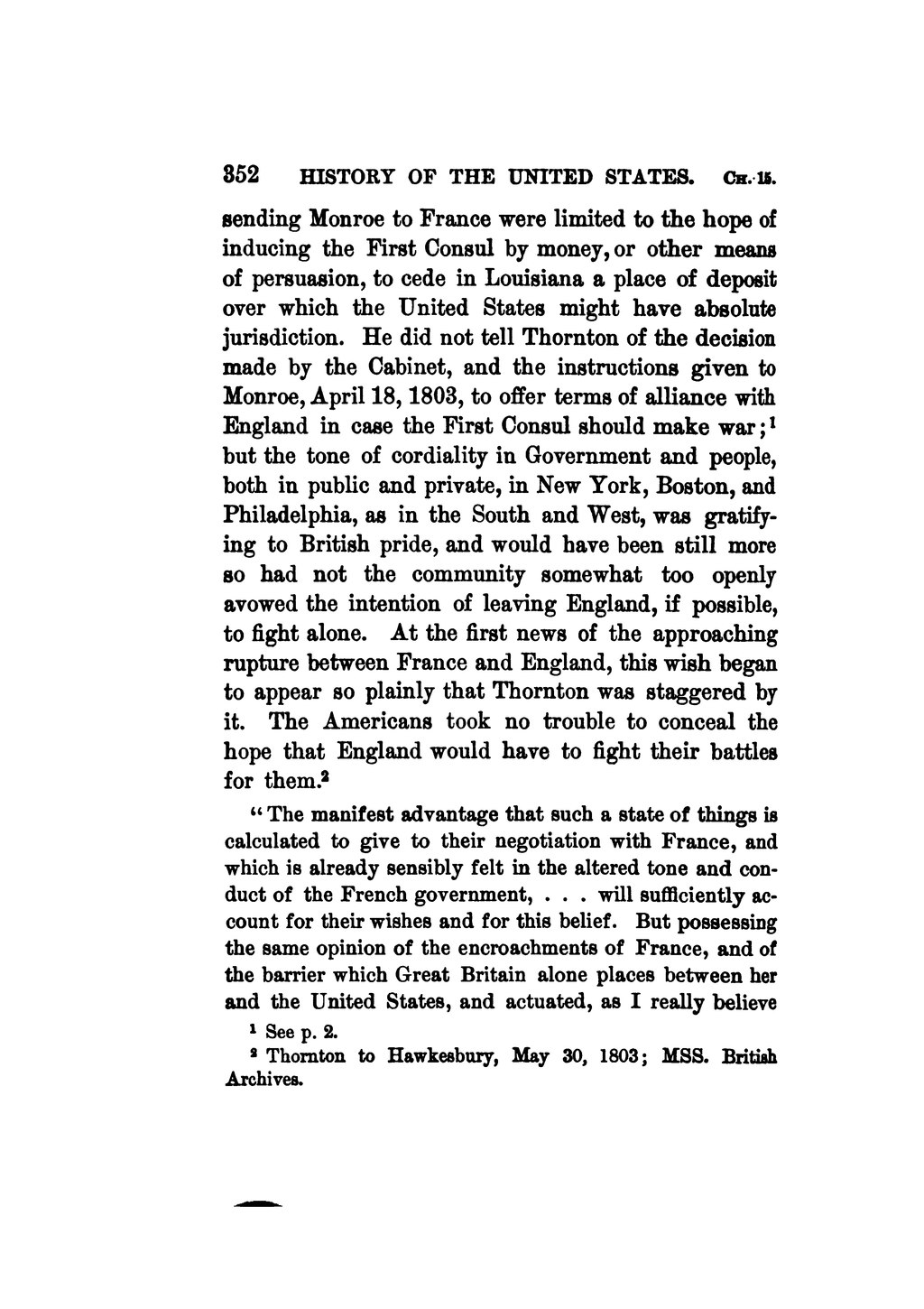sending Monroe to France were limited to the hope of inducing the First Consul by money, or other means of persuasion, to cede in Louisiana a place of deposit over which the United States might have absolute jurisdiction. He did not tell Thornton of the decision made by the Cabinet, and the instructions given to Monroe, April 18, 1803, to offer terms of alliance with England in case the First Consul should make war;[1] but the tone of cordiality in Government and people, both in public and private, in New York, Boston, and Philadelphia, as in the South and West, was gratifying to British pride, and would have been still more so had not the community somewhat too openly avowed the intention of leaving England, if possible, to fight alone. At the first news of the approaching rupture between France and England, this wish began to appear so plainly that Thornton was staggered by it. The Americans took no trouble to conceal the hope that England would have to fight their battles for them.[2]
- "The manifest advantage that such a state of things is calculated to give to their negotiation with France, and which is already sensibly felt in the altered tone and conduct of the French government, . . . will sufficiently account for their wishes and for this belief. But possessing the same opinion of the encroachments of France, and of the barrier which Great Britain alone places between her and the United States, and actuated, as I really believe
